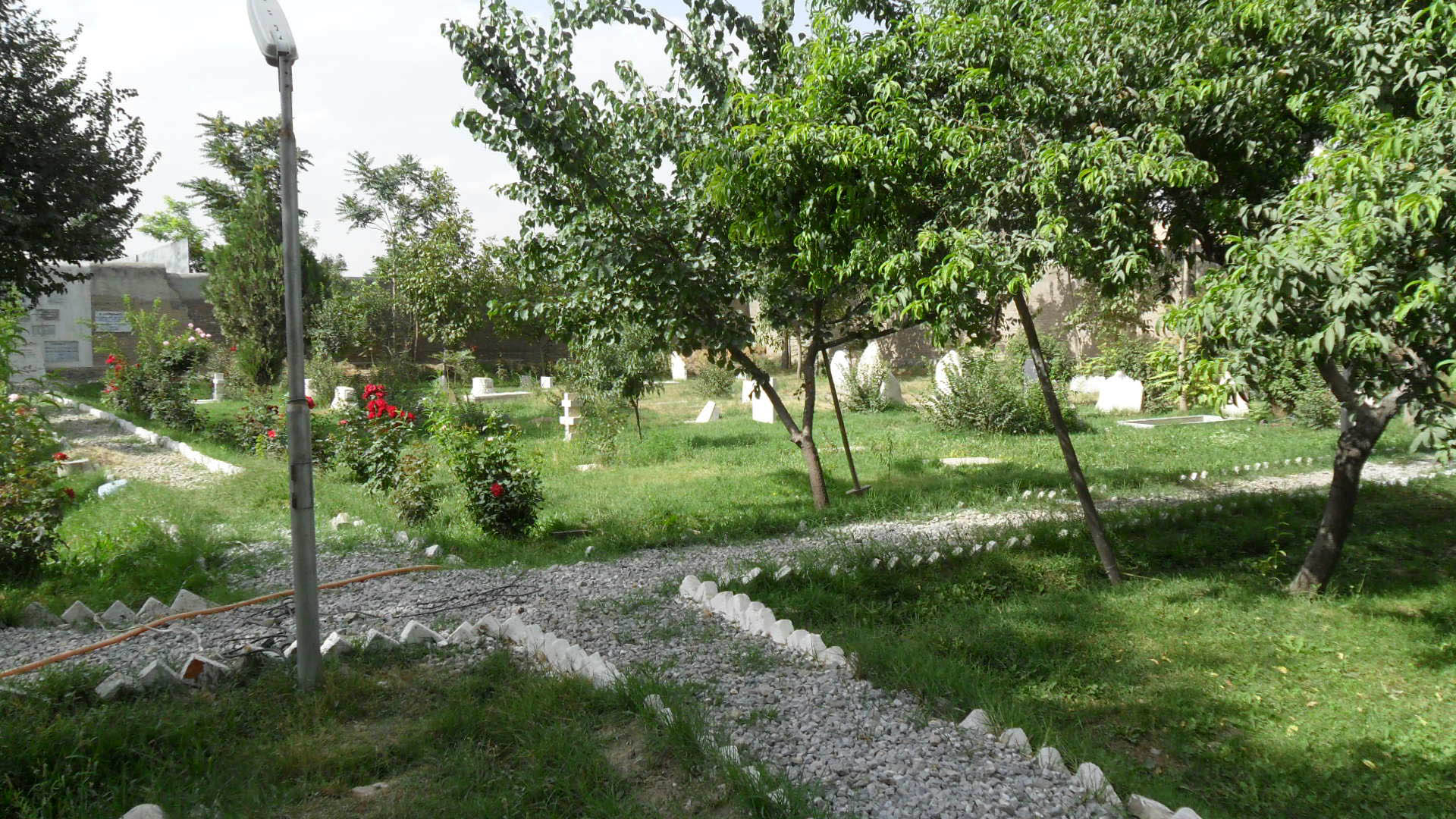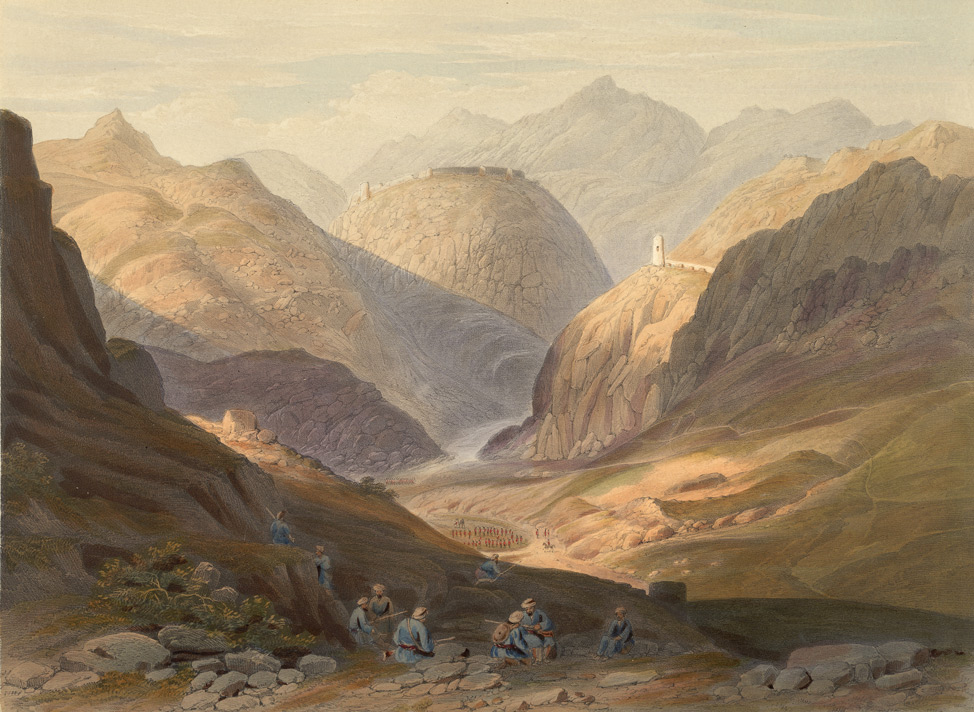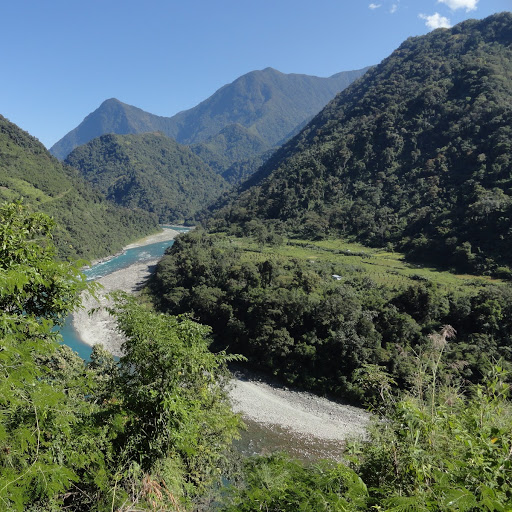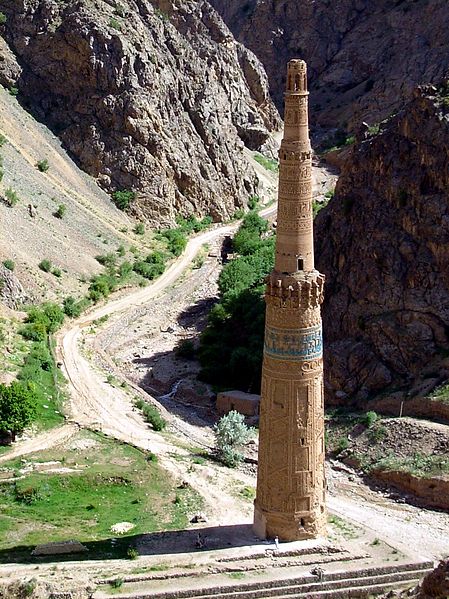There is a traveler’s proverb in southern Africa, “Tsela e kgopo, ga e latse nageng.’ (The crooked road will not leave you sleeping in the wild.) It applies on the road to Kabul just as readily as elsewhere. True to the proverb’s implied wisdom, the tarmac – but, gated – highway at Surobi (see previous post) had brought us up short in the mountain wilderness. As promised, the German roadbuilding engineer arrived punctually the next morning, and listened to our plea to be allowed to pass. Even the silent, all-fours, prayer of the little VW from Wolfsburg had no apparent effect on him. The German played his by-the-book role to perfection. The answer was ‘Nein’.
The impressive young man back at the crossroads in Surobi, his swagger and trendy clothes, his Fiat sports car, commanding presence and assuring voice proved a complete mirage. If we had had any second thoughts, one glance down that tarmac highway made us want to believe him rather than the ‘Verboten’ sign at the entrance. The upshot was we lost a day, slept with the wind in rugged country, and gathered valuable wisdom for the journey.
Mirage awaits the traveler everywhere. Ambition, exertion and stress, heightened imagination, desperate need – these all work to generate shimmering illusions and not only in mountain country. In the old quarter of Kabul, where we arrived the following night, lies a poignant monument to this very theme: it is called Kabre Gora, or the ‘English Cemetery’. It lies athwart one of the old thoroughfares of Kabul, such that the road swerves around the walled compound. A black archway with massive doors is usually locked but inquiry at the nearby shops serves to summon the cemetery keeper, Abdul Sami, who swings the gate open upon an exquisite scene. While the surrounding bazaar is all clatter, gray dust, and litter, the enclave lies there in a hush, lush with grass, rose bushes and fruit trees, shimmering – like a mirage. Scattered around in the quietness are the graves of foreigners: soldiers of empire, spies, explorers, ordinary travelers, seekers of fortune and enlightenment, refugees, scholars, and ne’er-do-wells. Mirage is the motif that unites many of the intriguing stories behind the headstones.

Abdul, the cemetery keeper, whom I met years later, tells me that his family has cared for the graveyard at considerable risk. During the years of Taliban rule, Mullah Omar, their late leader once summoned his father, upbraiding him for taking care of this ‘plot of infidels’. Abdul’s father replied cleverly, “I am old now and can do nothing further to disgrace or redeem myself. This is my duty and kismet.” He died in 2010, and handed his ‘kismet’ on.
But what makes the cemetery especially notable to me is that one of my classmate companions on that Eurasian caravan, Dan Terry, would come one day to lie within the walls of Kabre Gora. That remarkable story is told in the book, ‘Making Friends Among the Taliban’ which chronicles the passionate work of this humanitarian ‘who was building bridges while everyone else was blowing them up’. While history has taught us bitter lessons, the folly, of the mirages of power, arrogance, greed, and the violent means to achieve them, what shall we say of the altruists and people of generous faith who pursue in troubled country love of neighbor and humble service? They are buried in Kabre Gora, too.
Dan’s rare headstone seems to insist that not all is shimmering illusion. That there is a difficult, but real, path through the mountains that will not leave us sleeping rough in the wild.



Great narration as I have only read about that area but you were there! Happy Nee Year! Dan J. in Cambridge!
New Year too!
Hello, Dan! Yes, the Kabul of today is a world away from that of my first visit. The Silk Road buzz has been overtaken by the pervasive angst of war. Everywhere walls and blast deflectors have turned the streets into virtual cattle chutes. Life is lived behind shutters and gates. When I set out on the streets by foot to keep an appointment a passing motorist pulled me into his vehicle berating me for risking kidnapping or worse. That being a small clue that the practice of hospitality, a prime feature of Afghan culture, is still alive behind the walls and uncertainty.
Thanks, Jonathan. You did it again.
Greg
Thanks Jonathan for another intriguing thought-provoking post about how war & conflict continue to destroy bridges and what’s truly human among us. I read this soon after the plane when down in Iran bearing 63 Canadians so this feels very close to home right now.
So, yes, your friend’s headstone is more than a shimmering illusion which draws us on to seek that real path through the mountain, although it may be a costly one.
All the best to you & your’s in the New Year.
Leona & Peter
Sent from Windows Mail
Yes, Leona and Peter! Our sympathies in these moments of Canada’s losses. We have witnessed ghastly illustrations of the power of mirage these last days. It feels sometimes as though the past – how it might instruct us – is erased at each such point of decision. Call us willful amnesiacs. Then there are the Dan Terrys of the world who by some stroke of fortune have set out on a divergent course, convinced of another heading. And something in that telling, in that witness, in that wisdom, lasts and possesses. The headstone lies in the old quarter, in Kabre Gora, it is true, but it has the capacity to inspire, to quicken the heart and the step.